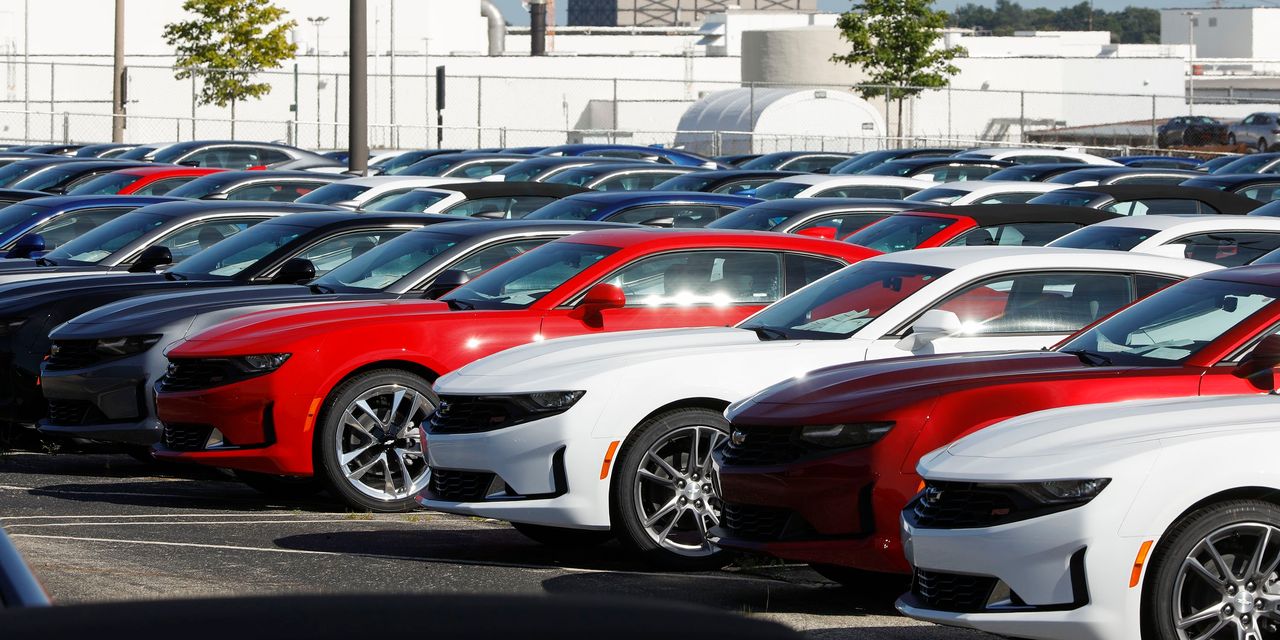
The global chip shortage has slammed the auto sector this year, cutting factory output by several million vehicles and erasing billions in revenue for car companies.
Next year is expected to be nearly as challenging, industry analysts say.
Auto executives for months have expressed optimism that the problem would begin to ease by year’s end. Now, there is an emerging view that the chip shortage has morphed from a short-term crisis into a structural upheaval for the automotive supply chain that could take years to fully overcome.
Further disrupting chip supplies to auto makers are fresh bottlenecks in how semiconductors are tested and packaged in Asia. Meanwhile, semiconductor manufacturers are gradually phasing out the low-tech, low-margin chips that are prevalent in new vehicles, raising concerns about the availability of those chips further out.
Auto makers are faced with a two-pronged challenge: finding the chips they need to keep their factories running today, while game-planning to ensure a longer-term supply, which includes more U.S.-based manufacturing of semiconductors.
“Ultimately, if we don’t make feature-rich chips that only the auto industry uses, all of our jobs are at risk,” Jim Farley, Ford Motor Co. ’s chief executive, said in an interview.
SHARE YOUR THOUGHTS
How has the chip shortage—or other supply-chain issues—affected you? Join the conversation below.
Some auto manufacturers are already redrawing their 2022 plans.
Peter Anthony, chief executive of a Chicago-area supplier, recently cut his volume projections for the first half of next year by 20%. That estimate is an informed guess, though, because his customer orders change day-to-day based on chip availability, he said.
“Nobody knows,” said Mr. Anthony, whose UGN Automotive makes interior carpeting and insulation for several Japanese auto makers. “It’s a total crapshoot.”
The latest indication that the chip-shortage challenges aren’t over is expected to come Friday, when major car companies report third-quarter U.S. sales. Analysts expect a steep drop in third-quarter sales, following a strong spring, as the lack of semiconductors dents vehicle production and leaves dealership lots with little to no stock.
The auto industry’s continuing troubles trace back to the early days of the pandemic, when auto suppliers canceled chip orders because of concern over weak demand, analysts and industry executives say. Consumer-electronics companies soaked up much of that capacity, leaving car companies and their parts suppliers with a dearth of chips when car sales snapped back in the summer of 2020.
Several setbacks further pinched the availability of chips, used in everything from anti-lock brakes to multimedia displays. Power outages, a fire at a major semiconductor manufacturer and other disasters have disrupted chip output from Texas to Germany and Japan.
Now, the industry is confronting bottlenecks further down the supply chain. Semiconductors made by large manufacturers, such as Taiwan Semiconductor Manufacturing Co. , are sent to companies for assembly and testing in Malaysia and other Southeast Asian countries. Those companies have recently been hit with production disruptions due in part to pandemic-related restrictions and increasing Covid-19 outbreaks.
That part of the supply chain is expected to experience an extended backlog for chips used by the auto industry as well as other sectors, even if pandemic restrictions ease, said Phil Amsrud, a senior analyst at research firm IHS Markit who specializes in the automotive-semiconductor market.
“These back-end companies run at much thinner margins” than the semiconductor manufacturers, Mr. Amsrud said. “For them to make a big investment in capacity, they need to be absolutely sure of the short-term and long-term demand.”
Even for companies that are looking to expand capacity, lead times for some manufacturing equipment needed to boost output can stretch nine months, he said.
That holdup is the main reason IHS recently slashed its forecast for global vehicle output in 2022, cutting it by about 8.5 million vehicles from its previous outlook, for a total of 82.6 million. The company blames this year’s production losses from supply-chain disruptions, primarily the chip shortage, at about 10.6 million vehicles
Consulting firm AlixPartners LLP estimates the chip shortage will cost the industry $210 billion in revenue this year, nearly double its forecast from May.
One factor that leaves the auto sector at a potential disadvantage is its reliance on older chips, called microcontrollers. They have been used for decades to electronically control engines, air bags and other vehicle functions, and are pervasive because of their low cost and reliability.
But of the nearly $400 billion that semiconductor companies have announced in planned capacity expansions, little of it is expected to go toward microcontrollers, according to IHS.
Semiconductor companies lack incentive to invest in additional capacity for older technology, RBC Capital analyst Joseph Spak said. And while auto makers are moving toward more-advanced chips as they introduce electric and connected cars, that upgrade will put them into more-direct competition for chips with makers of consumer electronics, he said.
“We believe there could be structural reasons why semi capacity may limit automotive production over the coming years,” Mr. Spak said.
The shortage’s severity has hit auto makers unevenly. For example, Ford has lost more production in North America than any global car company—about 566,000 vehicles, according to research firm AutoForecast Solutions. But Ford executives have said the situation is improving.
Ford’s Mr. Farley said the company’s near-term tactics include securing backup stocks of chips and signing direct contracts with semiconductors companies, rather than relying on Ford’s direct suppliers. He also has proposed designing some vehicle components to require fewer chips.
Meanwhile, General Motors Co. for much of the year had managed to avoid cutting production of its most profitable vehicles, large pickup trucks and SUVs. More recently, though, it has canceled work shifts at its truck factories, which is expected to dent third-quarter earnings.
GM Chief Executive Mary Barra said in September that the auto maker is working directly with semiconductor manufacturers to secure chips.
“We’re going to make some pretty substantial shifts in our supply chain,” Ms. Barra said in an online interview hosted by Delta Air Lines Inc. Chief Executive Ed Bastian. “It’s a solvable problem, but it’s going to be here a little longer.”
Write to Mike Colias at [email protected]
Corrections & Amplifications
Of semiconductor companies’ nearly $400 billion in planned capacity expansions, little is expected to go toward microcontrollers. An earlier version of this article incorrectly said microprocessors. (Corrected on Sept. 30.)
Copyright ©2021 Dow Jones & Company, Inc. All Rights Reserved. 87990cbe856818d5eddac44c7b1cdeb8








